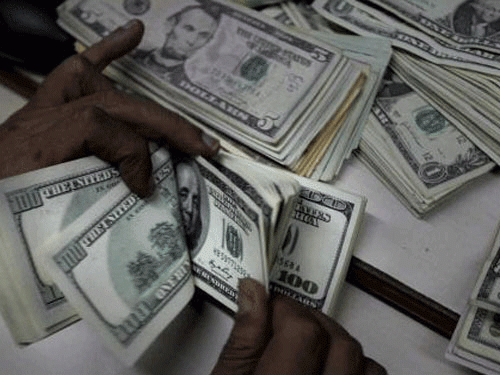By Staff Reporter
ISLAMABAD: Pakistan received $1.2 billion from the International Monetary Fund (IMF) as part of a nine-month bailout program, boosting its foreign-exchange reserves and easing pressure on its currency.
The IMF deposited the funds in the State Bank of Pakistan’s account on Thursday, Finance Minister Ishaq Dar said in a televised address. The payment is the first tranche of a $3 billion standby arrangement approved by the IMF’s executive board on Wednesday.
“I would like to share the information that the IMF has deposited $1.2 billion upfront payment in the account of SBP,” Dar said.
“Under the agreement, Pakistan received an instalment of $1.2 billion and the remaining $1.8 billion would be disbursed after two reviews, which will be held in November and February. This would boost foreign exchange reserves, and after this week’s closing on Friday, SBP reserves would have increased by $4.2 billion.”
The inflow will lift the central bank’s reserves to $14 billion news week, Dar said, the highest level since February 2020. Pakistan’s total liquid foreign reserves stood at $9.84 billion as of July 7, according to the central bank.
The IMF deal, which aims to address Pakistan’s domestic and external imbalances, is expected to unlock more financial support from other multilateral and bilateral lenders, as well as private creditors. Pakistan also received $1 billion from the United Arab Emirates and $2 billion from Saudi Arabia this week, after both countries were reassured by the IMF agreement.
Dar praised Prime Minister Shehbaz Sharif for his engagement with the IMF, which resulted in a short-term program that gives flexibility to a new government that will be formed after elections due November this year .
He said Pakistan was on a positive trajectory and needed to consolidate its gains.
Meanwhile, the country’s foreign-exchange reserves rose for a second week. The reserves held by the central bank increased by $61 million to $4.52 billion in the week ended July 7, according to data released by the SBP on Thursday. The total liquid foreign reserves of the country stood at $9.84 billion, while the net reserves of commercial banks were $5.31 billion.
The central bank said it received inflows from Saudi Arabia, the United Arab Emirates and the IMF will be reflected in its reserves for the week ending July 14.
The IMF deal, which aims to address Pakistan’s domestic and external imbalances, is expected to unlock more financial support from other multilateral and bilateral lenders, as well as private creditors.
The program will focus on tightening monetary policy to curb inflation, which is projected to average 25.9 percent in the fiscal year ending June 2024. The central bank has raised its benchmark interest rate to 22 percent to rein in price pressures.
The program will also support a market-determined exchange rate to absorb external shocks and reduce imbalances. The Pakistani rupee has depreciated by about 10 percent against the dollar since January, reflecting the country’s precarious balance of payments situation.
Copyright © 2021 Independent Pakistan | All rights reserved




